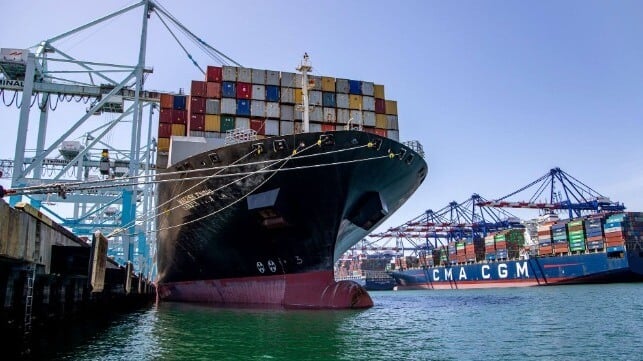Trade Court Blocks Trump's Biggest Tariffs

On Wednesday, a panel of three judges at the U.S. Court of International Trade ruled that President Donald Trump's sweeping "Liberation Day" tariffs are unlawful, finding that his orders exceeded his authority under the International Emergency Economic Powers Act (IEEPA). This 1977 law provided the legal basis for the administration's largest and most ambitious tariff rates, but the text of the statute does not mention tariffs, and it had never been used in this way before.
The Trump administration immediately filed a notice of its intent to appeal the decision. The president's levies on specific types of goods - cars, metals, auto parts - remain intact, as they rely on a different statutory authority.
The court ruled in favor of 12 states and five businesses that had sued to block the April 2 tariff hikes. If the ruling stands, the trade court's decision could have profound effects on American shipping, commerce and manufacturing. The April 2 executive orders imposed steep country-specific tariff rates, followed by a series of rapid adjustments and pauses - the latest as recent as last week, when the president threatened a 50 percent tariff on goods from the EU. The order would unwind these tectonic changes.

that matters most
Get the latest maritime news delivered to your inbox daily.
However, the judges noted that the president has alternatives. Under a separate statute, the Trade Act of 1974, the president has a clearly-defined power to enact tariffs of up to 15 percent for up to 150 days. That as-yet-unused statutory authority remains open to the administration.
It is unclear how the ruling would affect trade, and it raises practical questions. If the administration's high tariff rates are rapidly unwound, per the court's order, it could upend business plans to relocate manufacturing out of high-tariff countries (especially China). And the White House - which is attempting to negotiate "90 deals in 90 days" with foreign trading partners - would be suddenly without its largest source of leverage.
